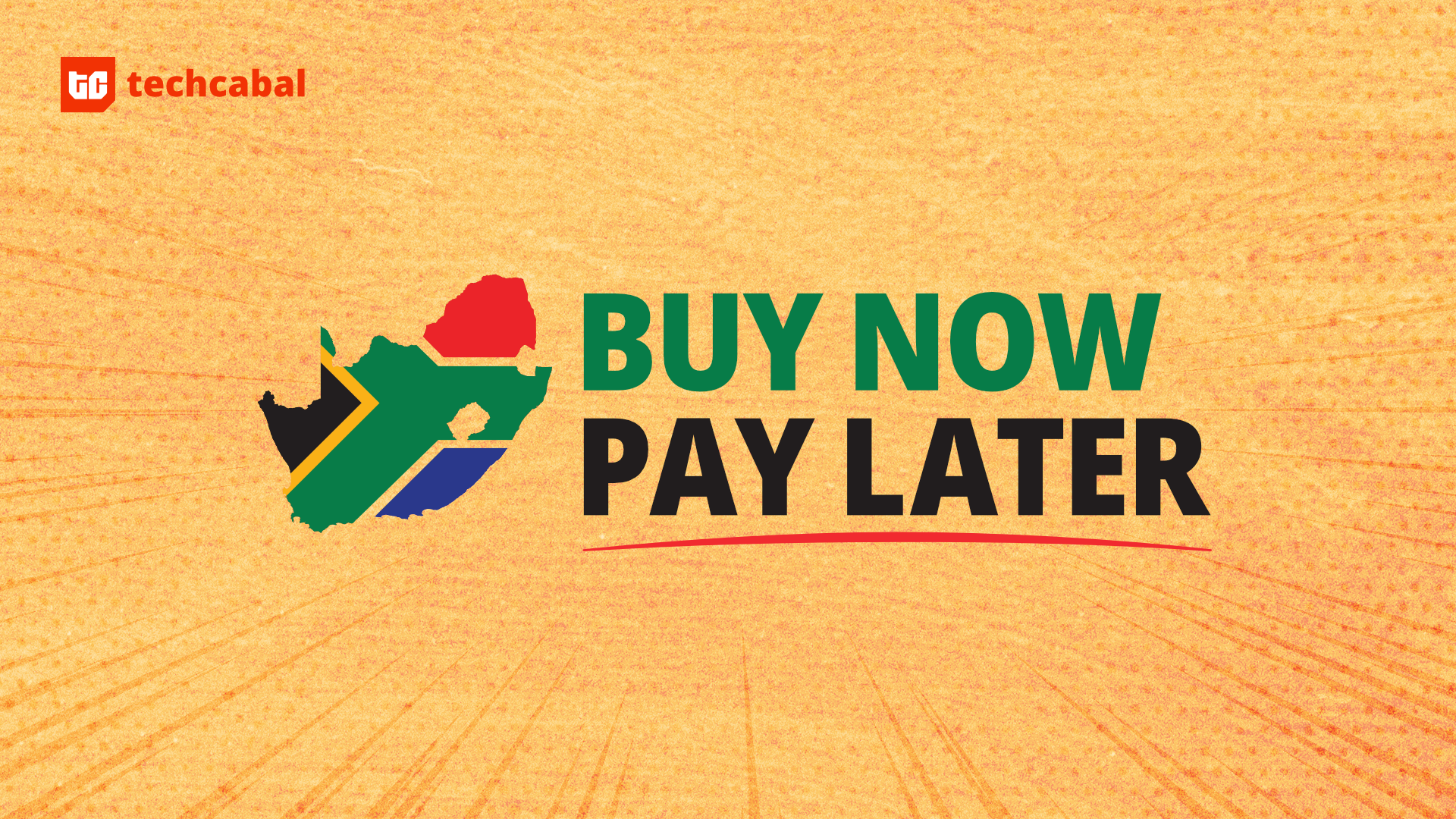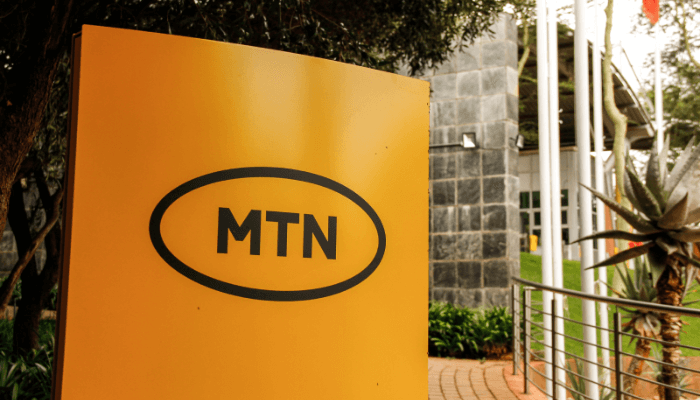As inflation rates soar across the globe and the cost of living skyrockets, people are scrambling to find ways to stretch the income they have. One of these ways is the use of buy-now-pay-later (BNPL) products as cash flow tools.
In South Africa, the BNPL industry first saw a boom during the peak of the COVID-19 pandemic, as South Africans who had lost their jobs and were surviving on savings were attracted by the extra credit line provided by the BNPL services.
Buy-now-pay-later products work by allowing customers to purchase products and pay for them installmentally, usually spread over four to six weeks. The main selling point of BNPL products is that repayment installments on the purchases are interest-free.
Seen by consumers as an alternative to the predatory interest rates demanded by the credit industry and also as a way to foster financial inclusivity, BNPL products have become commonplace in South Africa where more than 27 million consumers are either unserved or underserved by existing credit facilities, and 38% of the 26 million consumers with access are in breach or in arrears on their credit provider’s payments.
The broader BNPL picture in South Africa
According to data from market research firm KenResearch, South Africa’s BNPL market had a revenue cumulative annual growth rate (CAGR) of 64% between 2019 and 2022, and a forecasted CAGR of 35% between 2022 and 2027. The volume of transactions in the market is also on an upward trajectory, with projections of 26% CAGR between 2022 and 2027.
The major factors behind the country’s BNPL adoption boom are digitalisation, government support, increasing working age population, and a shifting preference towards interest-free extra credit line sources by Gen Z and Millennial working populations.
The BNPL market is currently dominated by a handful of players including TymeBank, through their MoreTyme offering as well as PayFlex and PayJustNow, both of who have since been acquired—the former by Australian BNPL company Zip in 2021 and the latter by Weaver Fintech in 2022.
Other players such as 4months, Float and HappyPay are also fast making their presence felt.
The evolution of the BNPL market in South Africa
Despite the plenitude of BNPL startups in the country, the majority of them follow the same business model, which creates revenue by charging merchants a commission for transactions made through the BNPL product. In return, the merchant, in theory, sees more traffic brought to their store by the convenience offered by the BNPL product.
BNPL providers try to distinguish themselves from the competition by offering access to promotions for consumers, longer installment payback durations, cleaner app interfaces, as well as collaborations with other fintech products.
Some startups, however, go beyond marketing and UI to stand apart from the crowd by offering a completely different form of BNPL to consumers. One of these is Float, a Johannesburg-based BNPL startup which uses the customer’s existing credit card limit to split payments for purchases into interest-free installments.
“Float works by helping shoppers split purchases into a series of monthly installments interest-free using the available limit on the existing credit card. They [the customer] select the number of installments that they want and each merchant can then customize what they offer their customers. Our approval decision on a particular customer is based on the credit facility that’s been extended to the customer by their bank,” stated Alex Forsyth-Thompson, founder and CEO of Float in an interview with TechCabal.
Another way Float makes revenue is by offering installments-as-a-service to merchants. Here, the merchant uses Float’s technology to get payment installments from customers using its own balance sheet, instead of Float settling the consumer’s payment upfront, as is the case with a traditional BNPL model.
“It’s almost like an installment-as-a-service platform in that we’re not funding the transaction at all, but just facilitating it for the merchant and collecting payments on their behalf. But in both models, the consumer always gets the item,” said Forsyth-Thompson.
Float’s unique models, according to Forsyth-Thompson, help reduce default rates, as users would have already been vetted by the bank which provided the credit card.
It also allows Float, unlike other BNPL providers in the country, to not charge late fees or penalties. Additionally, the models allow Float customers to purchase big-ticket items whereas the traditional model is only sustainable for smaller ticket items.
“The average BNPL purchase in South Africa is around R1,200 when using providers who use the traditional BNPL model. The average Float purchase, on the other hand, is about R10,000,” added Forsyth-Thompson.
Since its launch in November 2021, Float claims to have onboarded “a few hundred” merchants on its platform and has seen its monthly run rates increase by 1,300%, year-on-year.
Another BNPL provider looking to stand out from the crowd is HappyPay, a still-in-beta startup whose product looks to offer a “more responsible” form of BNPL to consumers.
Because BNPL products do not fall under the scope of South Africa’s National Credit Act and hence are not regulated by the National Credit Regulator, the BNPL industry is self-regulating. This can turn out to be detrimental to consumers, most of whom are not credit savvy, as they might get tempted to take out multiple loans with different providers and end up overwhelmed and burdened by mounting late payment fees and penalties as they fail to settle their loans in time.
To tackle this problem, HappyPay is building a forward-compliant BNPL product, which will place more emphasis on performing stringent credit checks to ensure that only customers who will be able to pay back their loans are approved.
“When we started HappyPay, we looked at the current BNPL market and said there are issues that currently exist which do not protect the consumer but actually take advantage of them because of their limited financial literacy,” stated Wesley Billett, co-founder and CEO of HappyPay.
“Our model takes into account affordability checks directly pulled from customers’ bank statements digitally via an API to the banks, and legacy systems like the customer’s credit score, etc. We then put those data points into our model alongside some other data points and make a well informed lending decision.”
Because of its stringent checks, HappyPay does not charge customers any deposit or late penalties, unlike other BNPL providers in the country. HappyPay also allows customers to make payments over two monthly pay checks, at 50% of the purchase amount each, ensuring that salaried consumers are not put under pressure. To contrast, other BNPL providers typically expect bi-weekly or tri-weekly payments.
“What you must understand about our business model is that our interests are aligned to the interests of the customer, so our entire existence is based on us being customer-centric. If the customer can’t pay us back, because we do not charge any late fees or take any deposit, it’s a big issue for us,“ added Billett over a call with TechCabal.
In its beta phase, HappyPay claims to have seen merchants who use the platform record an average ticket size of R1,850, larger than the average BNPL size of R1,200 in South Africa. Billet also adds that merchants who use HappyPay have seen their basket size increase by an average of 190%.
Beyond its “responsible BNPL” sell, HappyPay also has a big focus on customer acquisition through community building, which Billet states explains why its founding team comprises some of South Africa’s biggest celebrities and personalities including Boity Thulo, Maps Maponyane, Sarah Langa, Ayanda Thabethe, and Siv Ngesi who together have a reach of 1 in 2 South Africans on social media.
A venture capitalist’s perspective on BNPL in South Africa
Despite the impressive growth forecast of the industry and PayFlex and PayJustNow’s exits, venture capital activity in South Africa’s BNPL industry has been low and limited to a few early stage angel investments in some startups. To understand the VC community’s stance on the industry, TechCabal spoke to Clive Butkow, CEO of Kalon Venture Partners , a Johannesburg-based VC firm.
According to Butkow, the reason venture capitalists have not been eager to invest in BNPL startups is their low profit and gross margins model.
“It’s a very high volume business. Yes, you make a couple of percentage points per transaction but unless you are getting very high volumes of these transactions, the margins are very, very low, making it hard to grow a profitable business,” said Butkow.
He also pointed to the lack of thorough credit checks on BNPL loan applicants by providers as one of the reasons why VCs are slow to partake in the industry.
“There is not a lot of proper credit scoring being done to vet these BNPL loan applicants. This then adds more risk to an already high-risk business model,” Butkow added.
On whether the VC community’s perspective on the industry will change as it matures and adoption increases, he acknowledged that the accelerated adoption of BNPL products, driven by rising interest rates, ecommerce boom and adoption by brick and mortar retailers at points of sale, will see startups achieving topline growth, but to lure investors, they will also have to exhibit bottomline growth.
“From a VC’s perspective, in today’s economic climate, it’s not about revenue growth anymore. It’s about free cash flow. So I think if somebody came to my door with a BNPL product and showed that they’ve got a path to profitability and a positive free cash flow, and really growing their bottom line and free cash, as opposed to just the topline revenue, I will definitely lend them an ear,” added Butkow.
He also stressed the need for BNPL startups to differentiate themselves from the rest of the pack.
“VCs want to invest in a business that is going to 10x their investment. Achieving those kinds of multiples requires some unique competitive advantage and most of the BNPL startups don’t really have much differentiation. They are just different versions of the same thing. And this means it [the industry] is going to be very competitive and the startup will have to keep on spending more money in research and development to try to differentiate itself and that’s not attractive to a VC, ” concluded Butkow.
What consumers need to know about BNPL
According to Maya Fisher-French, a finance book author who also writes the financial advisory blog Maya on Money, although BNPL products are great budgeting and cash flow tools, like with most things, if used excessively and irresponsibly, they can prove to be detrimental to a consumer’s financial health.
“I’m concerned that it [BNPL] just makes it that much easier to keep consuming. So people just keep buying and buying and buying. And you know, before too long, you’ve got a lot of these little loans that actually start to become bigger cumulatively.”
Fisher-French also alludes to the fact that because BNPL products are not regulated, the onus is on consumers to be responsible enough to not over borrow, because if they do, remedies are very limited.
“I’m of the opinion that consumers also need to start looking after their money. We can’t keep waiting for some regulator to save us from our own financial bad practices,” she added.
Fisher-French pointed out that because of the peculiarity of the BNPL model and the fact that it is still relatively new in South Africa where the regulation needle tends to move slowly, it might be a while before a framework is devised. So until that happens, the buck stops with the consumer themselves.
What is the future of BNPL in South Africa?
CAGR forecasts paint a rosy picture of the future of BNPL in South Africa, but beyond just numbers, the success of the industry will depend on how well the current budding challenges are addressed.
Firstly, there is the issue of lack of interest from the country’s leading venture capital firms in BNPL. As capital becomes hard to come by, it will be the BNPL startups like Float, whose products offer unique value propositions, that will have access to the capital needed to build scalable businesses.
Secondly, there is also the issue of the nonexistent regulation for BNPL providers. Without an external regulatory body to keep players in check, startups could be tempted to prioritize revenue over consumer wellbeing, which would in turn stunt the growth of the industry as consumers would seek alternative solutions.
Last, but perhaps not least, is the issue of excessive and irresponsible use of BNPL products by consumers which, as Maya Fisher-French stated, will mostly have to be resolved by consumers themselves through responsible financial habits. Startups like HappyPay, who have made tackling the issue a priority, will be essential in curbing it.
Since its rise in popularity in Europe and the Americas, which has seen startups like Affirm and Klarna command multi-billion dollar valuations, the BNPL industry has shown that it has the potential to revolutionize and democratize access to credit and act as an alternative to the predatory fees and interest rates of credit card providers.
South Africa, where lack of access to credit is one of the main contributors to the country’s troubling inequality, the highest in the world, is one place where BNPL, if done right, can have a really positive and far-reaching impact in fostering financial inclusion.





















